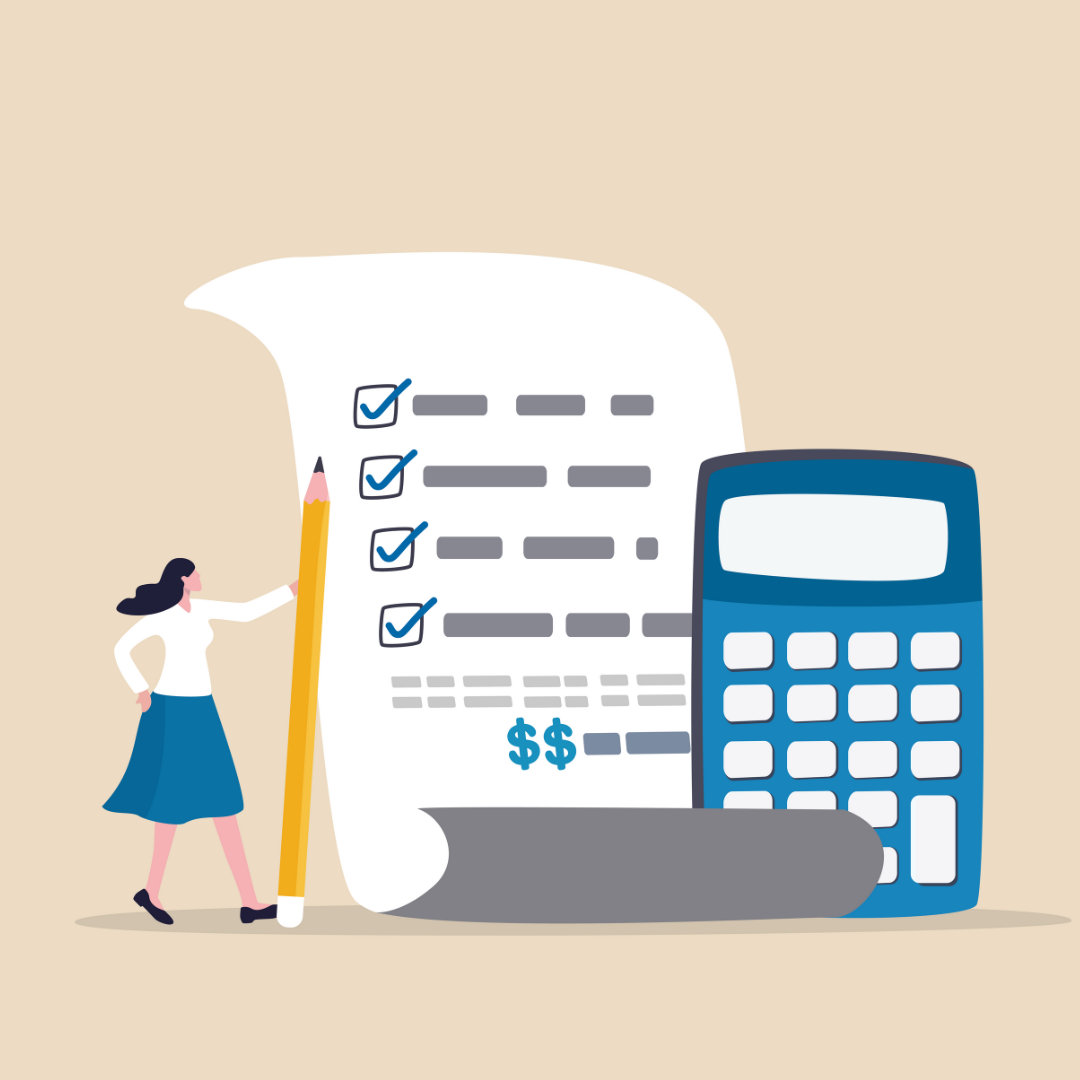What Is A Student Checking Account: Do I Need One?
May 25, 2023
As a student, managing your finances can be challenging, especially if you're new to banking. Having a checking account specifically designed for students can make it easier to keep track of your money and pay for expenses like textbooks and food. Read on to learn more about what a student checking account is, when to open one, how to open one, and other important details to keep in mind.
What is a Student Checking Account?
A student checking account is a banking account designed specifically for students. It typically has low or no fees and fewer restrictions than traditional checking accounts, making it an ideal choice for students who may have limited funds. Student checking accounts also often come with features like fee waivers, mobile banking, and mobile deposit, making it easier to manage your finances on the go.
When to Open a Student Checking Account
If you are a student who is looking for ways to manage your money better, you might be wondering if you need a checking account. A checking account is a type of bank account that allows you to deposit and withdraw money easily, using a debit card, checks, or online banking.
A checking account can help you keep track of your spending, avoid fees, and access financial services. But when is the right time to open one? Here are some situations where a student checking account can be beneficial.
Starting Your First Job
One of the reasons to open a student checking account is if you have started your first job. Whether it is a part-time gig or a summer internship, earning your own money can be exciting and rewarding. However, it also comes with some responsibilities, such as paying taxes and saving for your goals.
A student checking account can help you manage your income and expenses more efficiently. For example, you can set up direct deposit to receive your paycheck electronically, without having to cash it or pay fees. You can also use online and mobile banking to pay bills, transfer money, and monitor your transactions.
Heading to College
Another reason to open a student checking account is if you are heading to college. College is a time of learning and exploration, but also of new expenses and challenges. You might have to pay for tuition, books, housing, food, transportation, and other necessities.
You might also want to enjoy some fun activities with your friends, such as going out to eat, watching movies, or traveling. A student checking account can help you budget for your college life and avoid overspending.
For example, you can use a debit card to make purchases without carrying cash or paying interest. You can also use online banking to check your balance, set up alerts, and transfer money between accounts. Some student checking accounts also offer benefits such as free ATM access^ and waived monthly fees.

Can You Overdraft a Student Checking Account?
Yes, it's possible to overdraw a student checking account, just like any other type of banking account. When you overdraw your account, you're essentially spending more money than you have available. While most student checking accounts do not have overdraft fees, it is good practice to avoid overspending on your account.
How to Open a Student Checking Account
Opening a student checking account is a simple process that be completed online or in-person at a bank branch. Here are the steps you'll typically need to follow:
- Find a bank that offers student checking accounts: Many banks offer banking products and services specifically designed for students. Do your research and find a bank that offers a student checking account that fits your needs.
- Gather your documents: To open a student checking account, you'll typically need to provide proof of your identity and student status. This may include your student ID, driver's license, or passport. If you are under 18 you will also need a parent or guardian on the account.
- Complete the application: Once you've found a bank and gathered your documents, you'll need to complete the application process. This may involve filling out an online form or visiting a bank branch and speaking with a representative.
- Wait for approval: After you've submitted your application, the bank will typically review your information and approve your account within a few business days.
- Fund your account: Once your account is approved, you'll need to fund it with an initial deposit. This can typically be done online, through mobile banking, or in-person at a bank branch.
Important Details to Keep in Mind
When opening a student checking account, there are a few important details to keep in mind:
- Maintenance Fees: Some banks may charge a monthly maintenance fee for student checking accounts. Make sure you understand the terms and conditions of your account and any fees associated with it. Centier offers student checking 1 without fees.
- Statement Period: Your bank will typically provide you with a monthly statement that outlines your account activity. Make sure you review your statement regularly to ensure there are no unauthorized charges or errors.
- Debit Cards: Most student checking accounts come with a debit card that can be used to make purchases or withdraw cash from ATMs. Keep your debit card safe and secure to prevent unauthorized access to your account. These cards can also be added to your mobile wallet for a more secure and simplified way to shop.
- Savings Accounts: Many banks also offer savings accounts specifically designed for students. Consider opening a savings account to help you save for future expenses.
Budgeting Tips for Students
 Managing your finances as a student can be a challenge, but with some budgeting tips, you can stay on top of your finances and avoid overdraft fees! Here are some tips to keep in mind
Managing your finances as a student can be a challenge, but with some budgeting tips, you can stay on top of your finances and avoid overdraft fees! Here are some tips to keep in mind
Create a budget Creating a budget is an essential step in managing your finances. Start by listing all of your income sources and expenses, then allocate your funds accordingly. Make sure to include a category for savings.
Track your expenses: Tracking your expenses can help you identify areas where you may be overspending. Use a budgeting app or spreadsheet to track your expenses and adjust your budget as needed. Link your savings account: Many banks offer overdraft protection by linking your checking account to your savings account. This can help prevent overdraft fees by automatically transferring funds from your savings account to your checking account.
Avoid unnecessary fees: Check your bank account regularly to avoid overdraft fees and other unnecessary fees. Many banks offer fee waivers for students, so make sure you understand the terms and conditions of your account.
Use student discounts: Many retailers and service providers offer student discounts. Take advantage of these discounts to save money on textbooks, software, and other expenses.
Prioritize your expenses: When creating your budget, make sure to prioritize your expenses. Essential expenses like rent and groceries should take priority over non-essential expenses like entertainment.
In conclusion, opening a student checking account is a smart way to manage your finances as a student. With the right account and some budgeting tips, you can avoid overdraft fees and stay on top of your expenses.
If you're interested in opening a student account, we encourage you to learn more about Centier Bank's student checking account. With features like no monthly maintenance fees and free online banking, it's a great option for students looking to manage their finances.
Disclosures
1To qualify for this account, you must be between the ages of 14 and 24. If you are under the age of 18, your parent or guardian must also sign on the Centier Student Checking account. At the age of 25, your account will automatically convert to the Centier Checking account. You must deposit $25.00 to open this account. This account is not eligible for Overdraft Advantage®.
^A fee may apply at foreign ATM locations.
If the application is submitted after normal business hours, it may take up to two business days to validate your requested information.
Government regulations require that financial institutions make disclosures available to you when you apply for a new account. You may read and print our disclosures by clicking the following link - Disclosures.
Customer Notice: To help the government fight the funding of terrorism and money laundering activities, federal law requires all financial institutions to obtain, verify and record information that identifies each person who opens an account. When you open an account, we will ask for your name, address, date of birth, and other information that will allow us to identify you. We may also ask to see your driver's license or other identifying documents. Thank you for your cooperation.
Centier reserves the right to discontinue any offer at any time.
&Member FDIC
